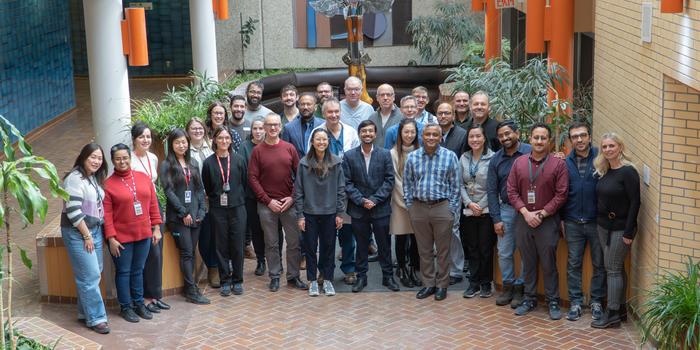The recent publication of three studies from the Calgary Stroke Program marks a critical milestone in the exploration of neuroprotection during ischemic stroke, a condition that affects millions worldwide. This collaborative effort, involving the University of Calgary and Alberta Health Services at Foothills Medical Centre, aligns with growing interest within the medical community regarding effective treatment modalities for stroke victims. The studies, featured in reputable journals such as The Lancet and Lancet Neurology, delve into the intricate interplay between neuroprotective interventions and traditional stroke therapies, highlighting the urgent need for innovative approaches to enhance patient outcomes.
Ischemic stroke, characterized by the cessation of blood flow to critical brain regions, presents a formidable challenge in emergency medicine. As neurons begin to perish at an alarming rate—estimated at 1.9 million per minute—it becomes imperative for medical professionals to act swiftly. The foundational goal of any acute stroke intervention is to restore perfusion, which is crucial for minimizing cerebral damage. This urgency underscores the invaluable role of specialized stroke centers that can offer rapid diagnostic and therapeutic services.
The ESCAPE-NEXT trial, one of the studies under scrutiny, aimed to assess the efficacy of nerinetide—an emerging neuroprotective agent—in patients undergoing endovascular thrombectomy. Previous research indicated that while the drug did not yield statistically significant results in broader populations, subsets of early-treated patients exhibited marked improvements. This reinforces the hypothesis that timely intervention may lead to more favorable clinical trajectories for certain individuals affected by ischemic stroke.
The second study, labeled the FRONTIER trial, broadened the examination of nerinetide’s utility by instigating its administration during pre-hospital transport. Paramedics administered the neuroprotective agent to patients suspected of suffering an acute stroke within three hours of symptom onset. Despite efforts to rapidly facilitate treatment, the presence of stroke mimics—conditions with similar manifestations but divergent underlying causes—complicated the trial’s outcomes. Clarity surrounding the timing and delivery of neuroprotective treatments remains paramount, shedding light on a significant variable that can influence patient response.
Dr. Michael Hill, a leading researcher within this sphere, articulated that the ongoing quest for neuroprotective therapies is more than an academic endeavor; it embodies a commitment to improving the standards of care for stroke victims. His insights, drawn from years of investigative work, emphasize that each clinical trial not only seeks to validate hypotheses but also incrementally furthers the collective understanding of stroke pathophysiology and management. The collaborative spirit among international research teams across multiple centers amplifies the prospects for meaningful breakthroughs in stroke treatment paradigms.
Further complicating the neuroprotective landscape is the interaction between various therapeutic agents. In earlier trials, researchers identified that the simultaneous administration of alteplase—a well-established thrombolytic medication—could impact the efficacy of nerinetide, suggesting that drug interactions warrant meticulous consideration during clinical design. This nuanced understanding of pharmacological interplay emphasizes the necessity of refined study designs that can optimize treatment protocols for heterogeneous patient populations.
Meta-analysis of data from ESCAPE-NA1, ESCAPE-NEXT, and FRONTIER serves as a beacon of hope, offering new perspectives on the neurological benefits attributed to tailored treatment strategies involving nerinetide. The computed analysis encapsulated data from a diverse cohort of patients across 135 stroke centers worldwide, providing a robust framework for assessing treatment impacts in acute settings. Acknowledging that subsequent trials will adopt revised protocols signifies that the scientific community is learning from past experiences to enhance the efficacy of future therapeutic endeavors.
The potential implications of these findings extend beyond academic curiosity; they resonate with the lived experiences of patients and families grappling with the aftermath of stroke. Advances in neuroprotection can foster significant improvements in functional recovery, reduce long-term disabilities, and ultimately enhance the quality of life for those affected by this debilitating condition. Here lies the emotional gravitas behind clinical trials; behind every data point is a story of resilience and hope.
As the search for effective neuroprotective therapies continues, the initiation of the ACT-42 trial signals a promising avenue for exploration. This next-generation trial is dedicated to administering nerinetide within a critical three-hour window following stroke onset, presenting an exciting opportunity to leverage earlier intervention in the evolving landscape of stroke care. With ongoing research and unwavering commitment from dedicated professionals, the vision of a world where the impact of stroke can be profoundly mitigated is increasingly within reach.
In summary, the concerted efforts of the Calgary Stroke Program and its collaborators are contributing invaluable insights to the field of stroke research. As elucidated in the studies published in The Lancet, the intersection of timely intervention, innovative neuroprotective strategies, and collaborative research will undoubtedly shape the future of stroke management and patient care. Every trial conducted is a step forward towards uncovering the complexities of neuroprotection and its role in safeguarding brain health during one of the most critical medical emergencies.
Ultimately, breakthroughs in ischemic stroke treatment hinge not only on the meticulous planning and execution of clinical trials but also on the continuous sharing of insights across the global medical community. As researchers peel back the layers of complexity surrounding stroke treatment, the hope for enhanced patient outcomes signals a new era in stroke care, filled with promise and potential.
Subject of Research: Ischemic Stroke Treatment
Article Title: Efficacy and safety of nerinetide in acute ischaemic stroke in patients undergoing endovascular thrombectomy without previous thrombolysis (ESCAPE-NEXT): a multicentre, double-blind, randomised controlled trial
News Publication Date: February 15, 2025
Web References: http://dx.doi.org/10.1016/S0140-6736(25)00194-1
References: [N/A]
Image Credits: Quentin Collier, Department of Clinical Neurosciences, AHS/UCalgary
Keywords: Ischemia, Neuroprotection, Clinical Research, Drug Research, Clinical Trials, Brain, Blood Flow, Reperfusion
Tags: acute stroke intervention strategiesAlberta Health Services collaborationcerebral perfusion restoration techniquescritical brain injury preventionenhancing patient outcomes in stroke careESCAPE-NEXT trial findingsinnovative stroke treatment modalitiesischemic stroke emergency responsenerinetide neuroprotective agentneuroprotection in ischemic stroketraditional vs neuroprotective therapiesUniversity of Calgary stroke research





